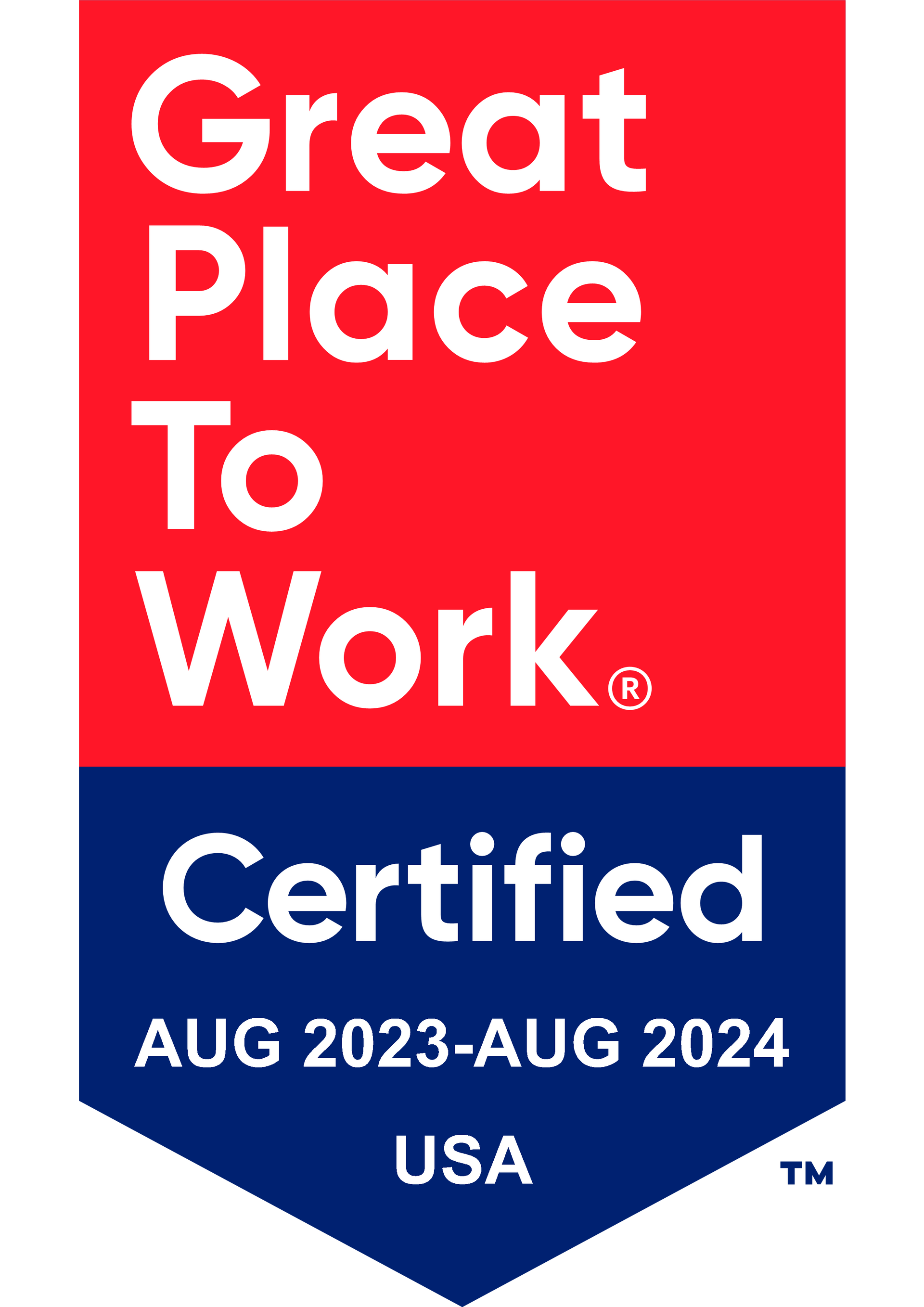Get in touch
408-366-8880
mymail@mailservice.com

What Is Financial Wellness and How it Affects ROI for Businesses

Employers who emphasize and appreciate how important the well-being of their employees is are more likely to attract and retain employees, which is significant, especially in today’s challenging labor market. If the Great Resignation has taught us anything, it’s that employees aren’t afraid to leave their current jobs or ask for what they want if their employers want them to remain. Employee wellness is also vital in terms of optimal productivity and a healthy and happy workforce.
A well-rounded employee benefits program considers employee wellness from all aspects—mental, physical, and financial. Financial wellness directly impacts mental and physical wellness. Individuals who struggle with finances feel the stress of those struggles, and there’s plenty of evidence that unhealthy stress impacts our mental and physical health, which leads to missed work, lower employee morale, and other consequences that impact an organization’s bottom line. In other words, when companies don’t help employees take care of their financial health, it costs both the employee and the employer.
What Is Financial Wellness?
You have financial wellness when you have control of your money and don’t feel stressed or worried about your financial scenario. According to Ramsey Solutions, financial wellness is not:
• Living paycheck to paycheck
• Making high-risk investments in things like crypto
• Swiping credit cards and racking up debt
• Using earned wage access programs and payday loans
Conversely, financial wellness does include:
• Having control of your day-to-day finances
• Having enough cushion to handle financial emergencies
• Being out of debt and able to manage expenses without swiping a credit card
• Staying on track to meet savings and retirement goals
Financial Wellness and ROI for Employers
You can’t always measure ROI in numbers. However, when something benefits both the employee and employer, you can generally trust that there is a positive ROI. For example, in the 2021 Financial Wellness Benefits Study, 91% of employers participating said they were more competitive in the job market since they offered a financial wellness benefit, and 81% said that, as a result of offering a financial wellness benefit, they’d seen a positive impact among their workforce. The 2022 SmartDollar Employee Benefits Study showed that:
• 26% of employees use their financial wellness benefits monthly.
• 8 in 10 employees indicate that employer-offered personal finance tools and resources are important.
• 25% of employees used their financial wellness benefits to build up an emergency fund.
• Due to their financial wellness benefit, 29% of employees began saving for retirement.
• Individuals with a financial wellness benefit at work were twice as likely to state they were extremely satisfied with their benefits package compared to those without the benefit.
As these states show, employees appreciate receiving benefits that support financial wellness and reap the benefits of such benefits, which means employers benefit too. Employers that offer financial wellness benefits often experience:
• Lower levels of reported employee stress
• Reduced healthcare costs
• Lower number of 401(k) loans
• Higher voluntary benefits participation
• Increased productivity levels
• Increased participation in retirement savings plans offered by employers
• A lower number of workers’ compensation claims
Financial Wellness Program Options
As a business or HR leader, there are several financial wellness programs available that you can offer to your employees. Some are true wellness programs, whereas others can do more harm than good. Thus, as with any employer-sponsored benefit consideration, it’s wise to do your homework to ensure the program you’re considering is on the up and up and is truly positive for your employees.
Earned wage access programs, for example, are not an option you’d likely want to avoid offering for reasons explained in the next section. Other programs that prompt concern, as well as some options that do offer positive benefits, are outlined below.
Earned Wage Access Programs
Programs that allow individuals to access their earned wages prior to them hitting their bank accounts are referred to as earned wage access programs. They offer a short-term fix to cash flow challenges and often encourage poor financial spending habits and behaviors, like purchasing items that are not essential or necessary.
Programs such as these make money by charging a hefty fee upfront for the use of the service, as well as a high-interest payment or penalty if the loan isn’t paid back on time. In short, these programs generally cause more problems for those using them vs. supporting financial wellness for the long term.
Financial Coaching Programs
Some financial coaching programs are legit and beneficial. Others are not. A beneficial financial coach will support your employees in understanding why they are having financial challenges and help them work on their emotional foundation to be healthier spenders and savers. They also won’t attempt to sell products and services that aren’t beneficial to the client or worse, makes their financial situation more difficult to navigate.
Financial coaching programs can be pricey when you opt for individual coaching. However, some financial coaching services offer group coaching and tools that are cost-effective for the employer while also being beneficial to the employee.
Financial Literacy Bank Products
Bank products tend to provide information to your employees, but they don’t necessarily do anything to support them in shifting their behavior to support healthy personal financial practices. Products offered by banks can include options like financial education webinars, budgeting tools, and financial advising. Again, these tools can be beneficial but don’t necessarily shift behavior. Also, many banks attempt to make money by offering free to low-cost services and then following up with costly credit card and loan offerings that can increase debt vs. eliminate it.
Financial Wellness Programs
Financial wellness platforms are those that want to work with business and HR leaders to determine the best approach to support an employee’s financial well-being. They offer tools and resources, like training and applications, that equip individuals to shift and develop behaviors that support saving, wise spending, getting out of debt, and more—the goal is to help achieve long-term financial success from where an individual is today through to retirement and beyond.
These types of programs are typically free to employees and make money by charging employers a fee to provide access to their platform. Use caution, however, if the program is backed by a big bank with the primary goal of making money vs. assisting your employees.
Student Loan Repayment Programs
Over 40 million people have student loan debt. With the student loan debt crisis, many organizations have begun to offer student loan repayment programs as a benefit. However, they’re not all created equal. Some student loan repayment programs are legit and beneficial to employees. Others, not so much.
If the student debt program offers loan refinancing options or pushes debt products onto those with student loan debt, they’re not serving individuals, but instead helping them get into more debt leading to additional financial illness. The goal is to ensure the student loan repayment program you’re considering for your employees is beneficial to your workforce by helping them get out of debt and not the other way around.
Choosing a Financial Wellness Program
As an employer, you have a lot of options when it comes to selecting the best financial wellness plan for your employees. Here are a few tips and reminders to guide you throughout the research and selection process:
• Do your homework to ensure the program is legit and beneficial for your workforce.
• Seek out programs that encourage behavior changes and development to support financial wellness.
• Avoid programs that make money through offering any type of loan or credit card that could increase debt vs. alleviate it or worsen the financial wellness of your team.
• Select programs that have your employees’ best interests at heart and truly want them to live debt free and embrace financial freedom for the long term.
• Work with an employee benefits broker to help you research and choose the best option for your organization.
Additional Tips to Encourage Financial Wellness
In addition to offering a beneficial financial wellness program for your employees, here are some additional tips to support financial wellness among your workforce:
• Offer a 401(k) or other retirement savings plan and offer financial planning along with it.
• Regularly educate your employees on the financial wellness benefits you offer through frequent and different forms of communication, like webinars and email communications, and by placing fliers and posters up in the work area.
• Offer an employee discount program, so they can save on items like car insurance, home insurance, phone plans, and various forms of technology they use.
• Continuously provide financial literacy tools in addition to your financial wellness programs, such as a regular speaker to share fundamental financial principles, remind them about planning for the financially secure future they want, and share financial podcasts, books, and other helpful resources.
Financial Wellness Benefits Are In-Demand
More and more employees are seeking employers that offer financial wellness benefits. Also, offering the best solution for your workforce is highly beneficial for both you and the employees in terms of productivity and overall well-being.
Whether you’re a business or HR leader that already offers such benefits and are curious as to whether it’s a solid option, you would like to enhance your current offerings, or you are looking to add such benefits to your benefits platform, an employee benefits broker, like KBI can support you at whatever stage you’re in. You have several options to choose from, and a broker can help take much of the weight and work off your shoulders to implement the best financial wellness solutions for your organization.
Contact us today for more information.
Services
Latest Thinking



